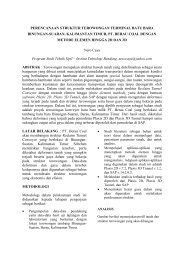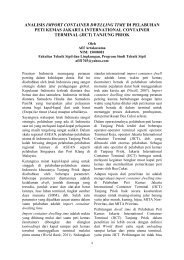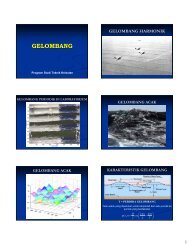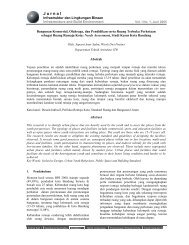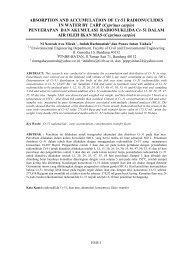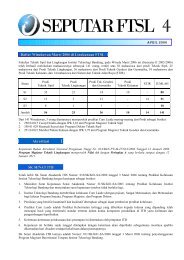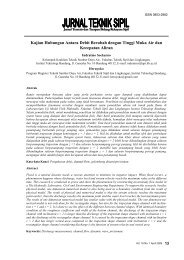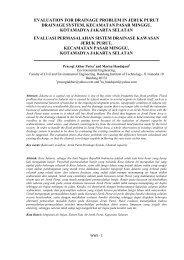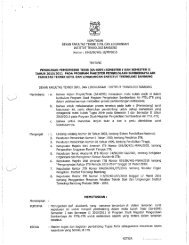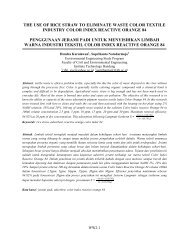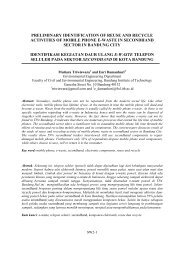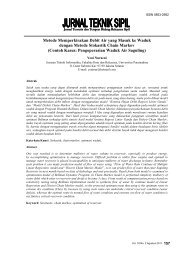PE-SW13-Yudhi Kristian-15305084 - FTSL-ITB
PE-SW13-Yudhi Kristian-15305084 - FTSL-ITB
PE-SW13-Yudhi Kristian-15305084 - FTSL-ITB
Create successful ePaper yourself
Turn your PDF publications into a flip-book with our unique Google optimized e-Paper software.
information about the program, which will be implemented. Furthermore, the socialization will<br />
make same perspective to community so they can together achieve the vision and mission have<br />
been defined. Citizens who are well informed on how to recycle are more likely to participate in<br />
a recycling programme than those who are not so well informed (Nyamwange 1996). Based on<br />
the distribution of the questionnaire, 90% people do not know CWTF, covering equipment,<br />
activities, and the purpose of CWTF in the environment where they live. There is 75% of people<br />
are never in the socialization and 25% did not follow the program socialization was hold either<br />
by the government as well as by community leaders. Weak socialization is one of the causes of<br />
not optimum acceptance level to program has planed.<br />
Knowledge is an absolute requirement to support the success of a community based<br />
program. According Devy (2005), 56% correspondent say that less information to be one of<br />
cause of the low public participation in municipal waste treatment, especially 3R. Based on<br />
Figure 4, 54% correspondent not understand to distinguish the type of waste is one of the causes<br />
are many people do not perform according to waste separating rules set.<br />
54%<br />
N=40<br />
Figure 4. Knowledge about waste type<br />
The people who can distinguish the type of waste is a community that had followed the<br />
program socialization, that is as much as 47% are housewives, 20% work as PNS, and 33%<br />
private work. Meanwhile, 54% of people who can not distinguish the type of waste, 74% had<br />
followed the program socialization and 36% did not follow the program socialization. Of these,<br />
68% were housewives, 10% private work, and 21% work as laborers. The data showed that the<br />
inability of people to separate the waste are caused by lack of knowledge, either because they do<br />
not ever participate in the socialization and lack of socialization. If the level of employment is<br />
assumed straight proportionate to the level of education, the education level has a positive<br />
correlation with the behavior of people in the management of waste<br />
Public Attitudes towards Waste<br />
3%<br />
Lack of knowledge and the socialization make results achieved do not match those expected.<br />
Lack of support will impact on the stagnating or even stop program. From Figure 5, to 56%<br />
people have separate at the beginning of the operational CWTF, 18% survive in waste<br />
separating, and 26% did not do the first time since CWTF has built. Ironically, 74% of people<br />
SW 13-7<br />
43%<br />
yes doubt no



